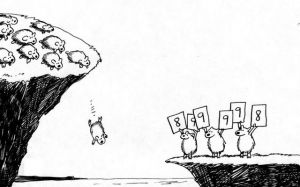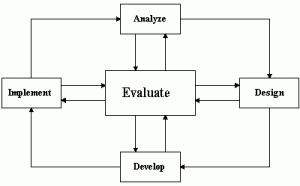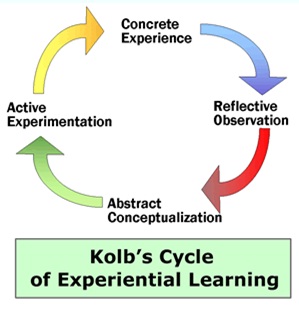Before you take the plunge!

Mosaic's Short Courses and Workshops are designed to meet identified
needs in the PM Training market.
As
part of our development processes, we routinely update our
courseware to optimize the content of each course, based on feedback
from trainees received as part of Mosaic's Quality Assurance
processes (
see selected feedback
from our trainees). Courses are reviewed after each delivery
and updated as needed to meet the evolving needs of the project
management community (
see more
on our short courses).
Mosaic's
approach to course design
Our courses are designed to include ‘just enough’ material to
achieve our target benchmark for the training as agreed with our
client. Developing a ‘complete course’ covering all of the
possible topics in a subject area would at least double the amount
of work you need to do (and the cost of the course) for no
additional benefit. However, we are continually adapting and
updating the course contents based on the best approaches to
learning, see: The Psychology of Effective Learning.
Courseware
Development Processes
 Mosaic’s
training is designed to improve trainee’s performance in their
present job, train new personnel to perform their job, or bringing
a trainee up to a defined standard. Our courseware development
follows the normal ISD (Instructional System Development)
processes, although the analysis phase, including curriculum
development, is more usually undertaken by others. The majority of
Mosaic courses are developed and maintained on a continuing
cyclical basis.
Mosaic’s
training is designed to improve trainee’s performance in their
present job, train new personnel to perform their job, or bringing
a trainee up to a defined standard. Our courseware development
follows the normal ISD (Instructional System Development)
processes, although the analysis phase, including curriculum
development, is more usually undertaken by others. The majority of
Mosaic courses are developed and maintained on a continuing
cyclical basis.
Develop the Training Plan
A Training Plan will help set the overall context for training
and may include the following
- The training strategy. The initial planning to obtain
management approvals; the elements to consider include:
- Strategy: Including an understanding of the stakeholders,
type of training needed, the desired outcome of the training,
assumptions, risks and the overall training approach.
- Scope: Preliminary decisions on who to include: project
managers, team members, functional managers, clients and/or
external partners.
- Overall Development Plan: Including 'high level' decisions
on the proposed classes, the number of classes offered, their
timing, the delivery mode (in-person, virtual, e-class),
content development process, budget, etc.
- Training Plan Development. Once the basic
proposal is approved, detailed planning can start:
- Training needs analysis. You should assess the current skill
levels and the required skill levels - see 'requirements
analysis' below.
- Specific classes. Define the specific classes to offer and
the order of the classes.
- Development. Determine how classes will be designed and
developed, see below.
- Delivery. Define how the content will be delivered. This
could be using internal staff or training vendors. And the
mode; there are many ways that training can be delivered
including; instructor lead, e-classes, webinars, books,
magazines, etc.
- Costs. An estimate the costs for the training plan as
developed.
- Success criteria. Describe how you will measure the
effectiveness of training and what metrics will be used.
Requirements Analysis
This phase is focused on Mosaic achieving a detailed
understanding of the need for the training and, where appropriate,
agreeing this need with our client. Where courseware is being
developed against a third party examination specification, we
spend significant time analyzing the requirements and ensuring we
fully understand the elements being examined. Where courseware is
being developed or adapted for the specific needs of a client,
Mosaic's consultant will work with the client's staff to identify
the key requirements of the training. The key elements in this
phase are:
- Analyse the role, or requirements, or documentation to gain a
complete understanding of the training requirements.
- Define the training needs (needs analysis). This may involve
assessing the current skills level of staff to determine the
training required.
- Build performance measures for the training.
- Define goals or outcomes.
Course Design & Development
The overall design of the course is established and where
appropriate agreed with our clients. The key elements in the
design phase are:
- Develop the learning objectives for each element of the
training, to include both terminal and enabling objectives.
- Identify and list the learning steps required to accomplish
the training.
- Develop appropriate performance tests to show mastery of
information, e.g. written, hands-on, etc.
- List the eligibility requirements or entry behaviours that the
learner must demonstrate prior to training.
- Choose the instructional setting for the tasks to be trained,
e.g. classroom, on-the-job, self-paced study, etc.
- Sequence and structure the learning objectives.
The development of the course materials is closely linked to the
design process. Development includes:
- Determining the learning environment, media and demographics
of the intended trainee group.
- Developing learner centered instructional materials including:
- Moderated discussions,
- Self assessment and trial exams,
- Team based scenarios and problem solving,
- In depth reference materials and resources.
- For more on effective learning see The Psychology of Effective Learning.
Implement the Training
 The
key elements in this phase are:
The
key elements in this phase are:
- Create a management plan for marketing and/or conducting the
training.
- Conduct the training:
- We blend theory with group and individual exercises to
provide a wide spectrum of learning experiences.
- A key aspect of our courses is a focus on deliberate
practice. Deliberate practice is an activity specifically
designed to improve performance, it can be repeated (a lot),
feedback on results are continuously available, it's mentally
demanding and it isn't much fun!
- We have developed 100s of questions designed to support the
learning component of each course that provide this type of
practice to help trainees prepare for their examinations.
- Support as far as possible the different learning
capabilities and styles of the group.
- Mosaic's Paper on The Art of Learning, helps
trainees understand their style and preferences.
- Where possible we reinforce learning through Kolb's learning
cycle
- Obtain feedback from trainees on both the trainers performance
and the courseware.
Evaluation
Continuing evaluation is a key component in our courseware
development and maintenance; we:
- Review and evaluate each phase (analyze, design, develop,
implement) to ensure it is accomplishing what it is supposed to
(Kirkpatrick Level 1).
- Where appropriate, perform external evaluations, e.g. observe
pass rates in certification examinations, etc (Kirkpatrick
Level 2).
- Actively seek feedback and suggestions from examination
candidates (within appropriate guidelines).
- Where appropriate undertake a formal review of the training in
conjunction with the clients management.
- Revise training system and/or courseware to continually
improve outcomes.
Mosaic's course leaders are experienced Program and/or Project
Managers, we actively maintain our subject matter knowledge and
teaching skills (see Instructor Development Policy below). We have
successfully guided many organizations worldwide, through the
implementation of methodology and the cultural change.
Kirkpatrick's
four levels of training evaluation
Donald Kirkpatrick is best known for creating a highly
influential four-level model for training evaluation.
Kirkpatrick's ideas were first published in 1959; but are better
known from his book published in 1975 entitled, Evaluating
Training Programs. The four levels of Kirkpatrick's evaluation
model measure:
- Reaction of student - what they thought and felt about
the training
- Learning - the resulting increase in knowledge or
capability
- Behavior - extent of behavior and capability
improvement and implementation/application
- Results - the effects on the business or environment
resulting from the trainee's performance.
The way we apply the Kirkpatrick model in our training delivery
is set out in the table below:

Instructor
Development Policy
By design we are a small business focused on providing an
excellent level of service to our trainees, as a consequence we do
not employ training staff. All of Mosaic's courses are developed
and delivered by:
 Dr.
Lynda Bourne DPM, PMP, FACS. Lynda is Director of Professional
Services with Mosaic Project Services. Lynda is an internationally
recognized consultant, author and trainer. See
Lynda's CV.
Dr.
Lynda Bourne DPM, PMP, FACS. Lynda is Director of Professional
Services with Mosaic Project Services. Lynda is an internationally
recognized consultant, author and trainer. See
Lynda's CV.
 Patrick
Weaver PMP, PMI-SP, FAICD, FCIOB. Patrick is the Managing Director
of Mosaic Project Services Pty Ltd. He is the designated R.E.P.
contact within Mosaic responsible for ensuring the continuous
compliance to R.E.P. policy. See
Patrick's CV.
Patrick
Weaver PMP, PMI-SP, FAICD, FCIOB. Patrick is the Managing Director
of Mosaic Project Services Pty Ltd. He is the designated R.E.P.
contact within Mosaic responsible for ensuring the continuous
compliance to R.E.P. policy. See
Patrick's CV.
Skills Development
To maintain our position at the forefront of project management
knowledge and teaching skills we actively engage in the creation
and dissemination of new knowledge and information through the
following activities:
- Researching and writing blog posts discussing topical issues
across a wide range of project and stakeholder management
issues.
- Researching and writing articles for a range of web
publications.
- Researching and writing articles for formal publications.
- Researching and writing White Papers.
- Developing and presenting conference papers.
The collection of papers and articles outlined above are
consolidated in our PM Knowledge Index, sorted
by topic. This resource is a valuable adjunct to our
standard course materials and freely available for all trainees to
use. In addition to developing materials, we also take the
opportunity to attend conferences and workshops on a regular
basis.
Contact
Us for more information

 Mosaic’s
training is designed to improve trainee’s performance in their
present job, train new personnel to perform their job, or bringing
a trainee up to a defined standard. Our courseware development
follows the normal ISD (Instructional System Development)
processes, although the analysis phase, including curriculum
development, is more usually undertaken by others. The majority of
Mosaic courses are developed and maintained on a continuing
cyclical basis.
Mosaic’s
training is designed to improve trainee’s performance in their
present job, train new personnel to perform their job, or bringing
a trainee up to a defined standard. Our courseware development
follows the normal ISD (Instructional System Development)
processes, although the analysis phase, including curriculum
development, is more usually undertaken by others. The majority of
Mosaic courses are developed and maintained on a continuing
cyclical basis. The
key elements in this phase are:
The
key elements in this phase are: 
 Dr.
Lynda Bourne DPM, PMP, FACS. Lynda is Director of Professional
Services with Mosaic Project Services. Lynda is an internationally
recognized consultant, author and trainer. See
Lynda's CV.
Dr.
Lynda Bourne DPM, PMP, FACS. Lynda is Director of Professional
Services with Mosaic Project Services. Lynda is an internationally
recognized consultant, author and trainer. See
Lynda's CV.  Patrick
Weaver PMP, PMI-SP, FAICD, FCIOB. Patrick is the Managing Director
of Mosaic Project Services Pty Ltd. He is the designated R.E.P.
contact within Mosaic responsible for ensuring the continuous
compliance to R.E.P. policy. See
Patrick's CV.
Patrick
Weaver PMP, PMI-SP, FAICD, FCIOB. Patrick is the Managing Director
of Mosaic Project Services Pty Ltd. He is the designated R.E.P.
contact within Mosaic responsible for ensuring the continuous
compliance to R.E.P. policy. See
Patrick's CV.